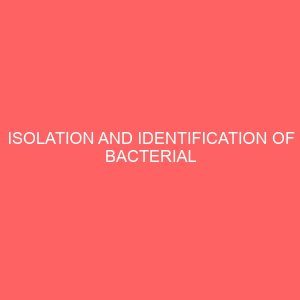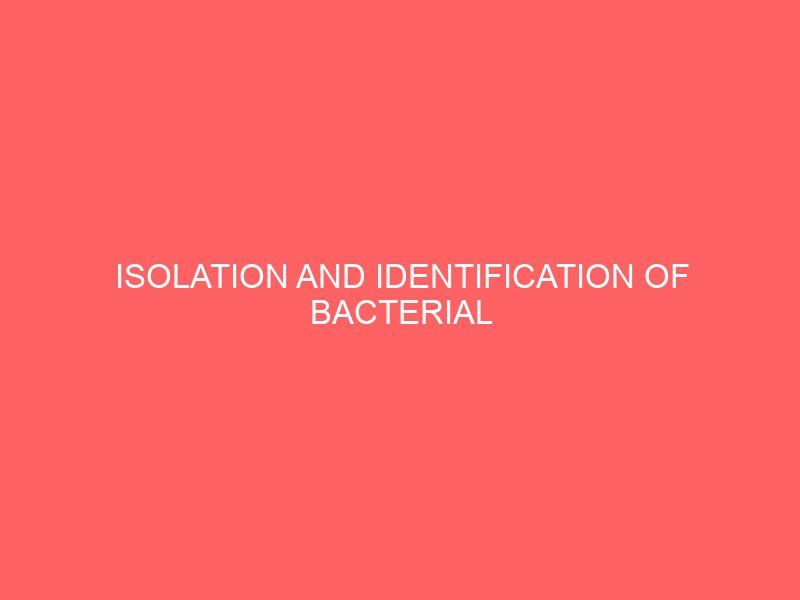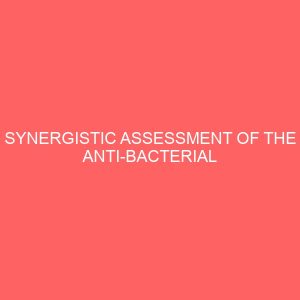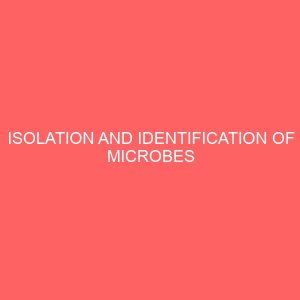Description
Abstract
This project looks at Isolation and identification of bacterial aerosols bioaerosols dump sites in Yenagoa. An investigation of the bacteriological quality of air around a municipal refuse dump in Yenagoa, Bayelsa State, Nigeria, was conducted to assess the bacteriological contamination of air and also to assess the ambient air quality of the closest neighborhood to the dump site. The microbial concentration of air around the dump site was measured using the “passive method” that involved exposing sterile Petri dishes containing nutrient agar to the air for about fifteen minutes. The exposures were carried out once a week for three weeks at some locations which include Active dumpsite, Abandoned dumpsite, and Control point where people live which is about 200m away from the dumpsite. The result from this research shows that the mean total bacterial counts obtained from the active dumpsite, the dormant dumpsite and the residential area (control point) close to the dumpsites were relatively high with mean values., Active dumpsite (1.0×104 CFU/m3), Abandoned dumpsite (1.5×103 CFU/ m3), Control (8.9×102 CFU/ m3) respectively, with the active dumpsites higher than the Abandoned dumpsite and control point. The microorganisms isolated and identified in the air around the study locations include Bacillus spp, Escherichia coli, staphylococcus spp, Enterococcus spp, Klebsiella spp, Streptococcus spp, Salmonella spp and Serratia spp (Table 3 below).The bacterial distribution in the air around the study locations showed, 12.75% Bacillus spp, 27.26% Escherichia coli, 13.92% staphylococcus spp, 11.29% Enterococcus spp, 10.29% Klebsiella spp, 9.25% streptococcus, 11.36% salmonella spp and 3.78% Serratia spp. Escherichia coli had the highest frequency, this was followed by staphylococcus spp., Bacillus spp was next in the frequency of occurrence, followed by Salmonella spp, streptococcus spp. Enterococcus spp, Klebsiella spp, and Serratia spp having the least frequency of occurrence.








Reviews
There are no reviews yet.